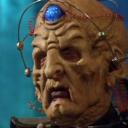Yahoo Answers is shutting down on May 4th, 2021 (Eastern Time) and beginning April 20th, 2021 (Eastern Time) the Yahoo Answers website will be in read-only mode. There will be no changes to other Yahoo properties or services, or your Yahoo account. You can find more information about the Yahoo Answers shutdown and how to download your data on this help page.
Trending News
What happens after the Universe Dies?
What happens to the Human Species, I mean chances are that it would long long long be extinct by the time the Universe ended, but what if Humans were still there?
What if there are other universes?
Could there be another big bang and things would just restart?
What would happen to time and space, I mean what would the universe be like if you were there watching the universe after it ended?
4 Answers
- Ray;mondLv 78 years ago
Death of the Universe is an old idea which has been loosing credibility in recent decades. The decay of the first proton has not been observed. It is now thought that galaxies and galactic groups are not expanding, but it is the voids that are getting wider. In a few trillion years some galaxies will have little hydrogen left to make new stars, and the least massive stars will be cooling, so it will be cold and dark, but it appears planets, moons, asteroids and comets continue until they collide with something. High tech humans if there ever are any will likely devise a way to survive in at least small numbers
- DavrosLv 78 years ago
Big question. Few answers.
First of all the stars will shine until all the free hydrogen is used up. This will be in:
10,000,000,000,000,000,000 years time.
After that, it's pretty much game over for life in the cosmos. Some very clever species may learn how to derive energy from exotic sources but existence will be cold, meagre and dark.
The universe is currently most likely to end in an event dramatically titled "Heat Death" (assuming something called proton decay) and that event is going to occur about:
100, 000,000,000,000,000,000,000,000, 000,000,000,000,000,000,000,000, 000,000,000,000,000,000,000,000, 000,000,000,000,000,000,000,000,000
years from now.
(without proton decay you can imagine a similar ending, but there will be several thousand more zeros)
It's an agonisingly slow whimper of a death, as entropy increases to the point where there is zero free energy available in the cosmos to do work, and all matter reaches absolute zero in temperature.
Because beyond this point nothing changes from one moment to the next anywhere in the universe, the arrow of time is said to have ceased. Basically time no longer exists and everything stops eternally. The universe will add up to zero energy, similar to how it was as a singularity at the start of it all.
Whatever exists beyond that point is entirely at the whim of quantum fluctuations, and who knows, perhaps one day a fluctuation will be enough to knock things back out of equilibrium and triggering another Big Bang. We're all well out of our depth on that idea. It's all speculation.
Just to add:
Homo-Sapiens have only been around for about 150,000 years, and the Genus Homo for only a couple of million. Even if we do go on to colonise the stars we are going to continue to evolve, so if we are talking about our distant descendants, we are not talking about "humans" but about the species which are to evolve from us. Who knows, perhaps they shall see the final stars burn?
- duke_of_urlsLv 78 years ago
Maybe by then we will know both how to start a new universe and how to move in.
- ?Lv 68 years ago
The universe will never end because it never began. It has always existed. This documentary may enlighten you...




